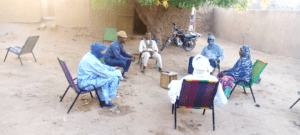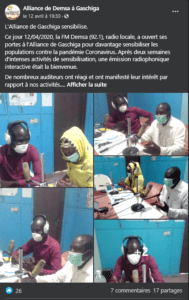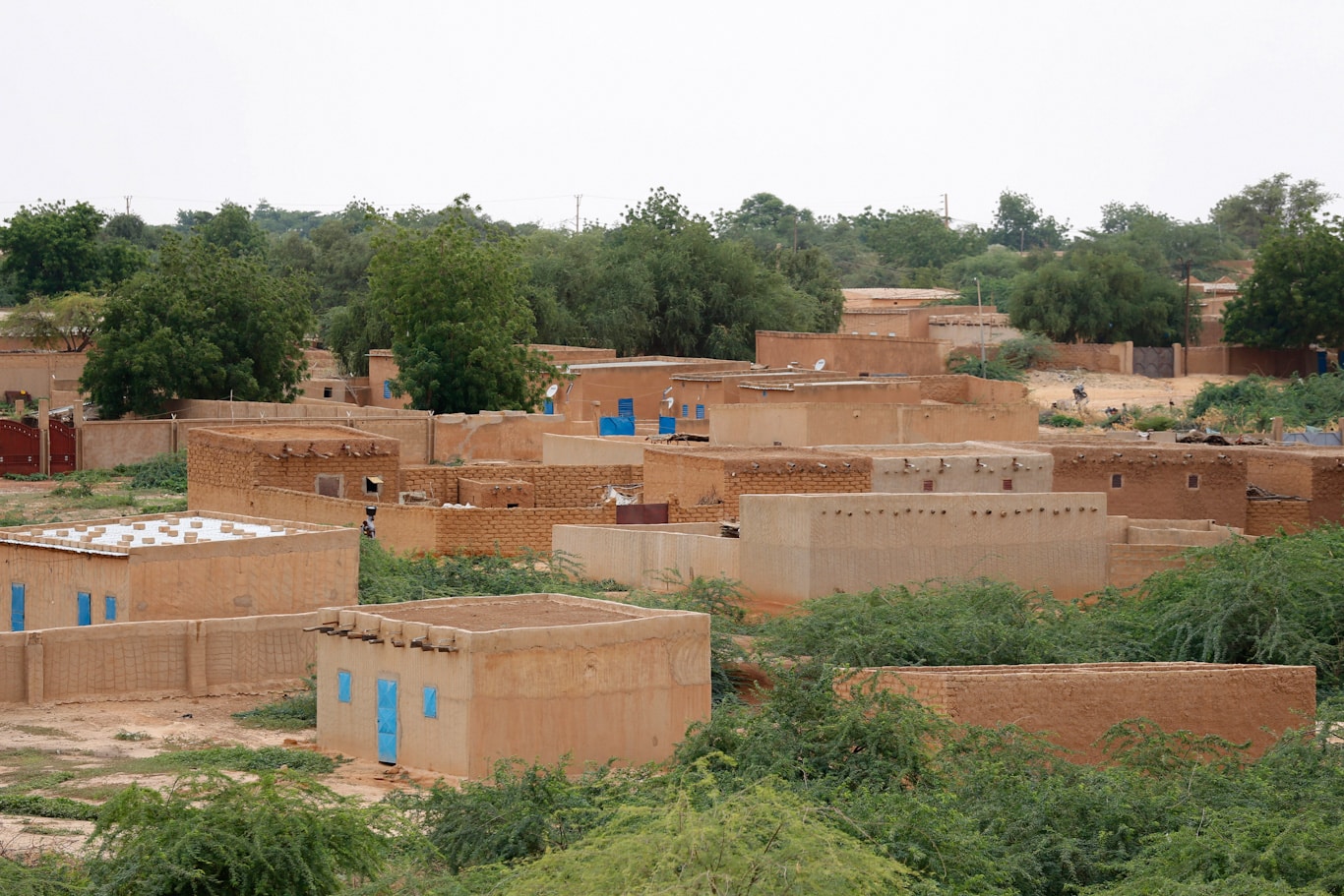In March 2020, the Voices for Peace (V4P) project, with the full support of USAID, moved quickly to adapt strategies to incorporate several COVID-19-related activities into the project’s existing results framework to mitigate violent extremism gaining ground under these circumstances.
Linking CVE and COVID-19
Violent extremist groups are quickly adapting to take advantage of the exceptional situation: mobilizing believers against authorities’ and religious leaders’ decision to suspend collective worship, luring those into their ranks who feel excluded from governments’ attempts at economic stabilization, or flexing their operations in rural zones while government officials stay in confinement.
A successful response to COVID-19 for a project that counters violent extremism requires reinforcing strong bonds of social cohesion – that everyone must play their part – and establishing a level of trust in government actions.
All these factors are outcomes in the V4P results framework, allowing the project to easily pivot to address the negative impacts of the pandemic.
Making COVID-19 tangible to communities through coherent and highly adapted messages

At its core, V4P is a media-based project, and our 82 radio station partners are essential arteries for connecting with thousands of rural and urban communities across the countries where we work in the Sahel (Burkina Faso, Cameroon, Chad, Mali, and Niger). To ensure direct contribution to ongoing sensitization campaigns, V4P is supplying radio partners with fact-checked health guideline documents in local languages to spread coherent messages in line with governments’ actions. This information is then communicated out via community radio stations, allowing V4P to reach even the most distant communities that are often excluded from communication efforts due to language or geography.
Interactive radio programs such as roundtable-discussion broadcasts and call-in opinion shows, which typically address local topics relevant to countering violent extremism, are now incorporating COVID-19 prevention strategies into their discussions, allowing listeners to contextualize this disease instead of perceiving it as an issue of the capital city or Europe or China. Appropriate social distancing measures are respected during these broadcast recordings.
Innovating remote radio production and inclusive public consultations
In order to respect hygiene and distancing measures while conducting radio roundtables, V4P in Chad has developed an innovative remote production process. Panelists record themselves individually and the program is edited remotely before being sent via WhatsApp to members of the standard Content Advisory Groups, composed of specialists and community members who ensure linguistic and cultural resonance. Radios then receive the final version of the radio program via WhatsApp. This allows essential radio production to continue without putting anyone at risk.
Burkina Faso had planned a series of town hall meetings to collect public feedback on the ongoing implementation of the Emergency Plan for the Sahel. V4P has adapted the town hall meeting by inventing a remote consultation approach. Partner radio stations agreed to dedicate one hour of airtime to public call-ins to solicit listener feedback, and the presidents of every Village Development Committee agreed to collect local feedback to V4P. In total, V4P received 382 individual messages, which equals or even surpasses what would have been recorded at a live town hall.
Key pivot points: Government recognition and civil society networks

V4P’s rapid pivot has been facilitated by governments’ recognition of V4P’s unique positioning and proven ability to effectively communicate on topics of social cohesion and trust towards authorities. In Niger, the government committee in charge of the COVID-19 response has signed a partnership agreement to diffuse V4P-produced messages on national television and other local media. Audio and video messages are validated by government officials for accuracy and adherence to national policies. In Chad, the COVID-19 monitoring unit of the Secretary General of the Presidency has solicited V4P to address questions around Ramadan.
Another principal force that has permitted V4P to act quickly is its network of civil society actors working in hard-to-reach communities yet who are well-connected on social media, which V4P can activate without having to be physically present in these locations. As an example, V4P in Cameroon has conveyed to over 500 members of various civil society coalitions the importance of addressing COVID-19 dynamics in order to continue their CVE engagement. This broad network of local actors has since worked with authorities and community members on understanding COVID-19 prevention measures. They spread messages in collaboration with V4P partner radios, distributed hygiene kits to mosques, combated disinformation through radio roundtables, and disseminated V4P-produced informative video clips on social media.
With adaptive radio partners at their core and flanked by highly engaged civil society actors and results-driven government officials, communities in Burkina Faso, Cameroon, Chad, Mali, and Niger are leveraging COVID-19 as an opportunity to further cement social cohesion as a fortress against violent extremism.

